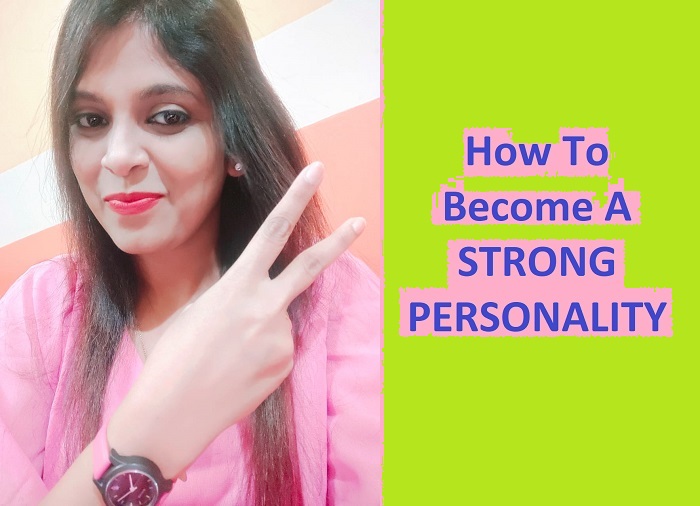Confidence is not a thing which you can learned by setting a rule or simple reading with some story not even mug up the things and jotted down on a paper. It is something which directly related with the state of mind, acquiring knowledge, get training, practice the same and talking to other people in a useful way to help to boost your confidence level. To gain confidence Positive Thinking is one of the crucial way.
Confidence is basically a feeling which state of mind is accepted by your body and mind (self esteem) and believing yourself in your own ability, skills and experience.
Low confidence can causes fear of unknown face, can make you unhappy with personal appearance, can be dangerously caused poor time management, unable to handle criticism, lacking of knowledge and previous failures.
Confidence is not just a static measurement, if you have this and do your task with this then your performance can increase or decrease, and you can feel more confident than others.
With us you can easily build up your confidence, with some practical advice about the things you can do to build up your confidence level.
It is very much required to know that confidence and self esteemed is not the same thing, although we linked them often. Confidence is the term we use to describe how we feel about our performance, our ability, and the tasks and functions what we are doing. Self esteem is all about how we feel about ourselves, about our look, the way we think whether we feel that worthy or valued. Those are having a low self esteemed generally suffers for low confidence though people of low self esteem can also suffer from low confidence. But it is also possible for people of low self esteem to be confident in some areas.
Confidence is not like to completing any task confidently without making any mistakes. Mistakes are acceptable, especially when doing something new. Confidence is to know what to do when mistakes happens, and how to solve the mistake by using problem solving and decision making skills.
Here discussing few ways to Improve Confidence
Planning and Preparation
Most of the people get confused and feel less confident for any new difficult situation. The most important factor of developing confidence is Planning & Preparation for the unknown.
For example, when you are applying for a new job, you must have a plan with you about the via you will choose for apply the job, then you will have a plan for interview, you will prepare for yourself with the most common and possibly asked questions in interview. And will practice the same with your friends and colleagues. And will take the feedback from them. You will be focus about the dress code you need to follow for the same. Even if you are traveling for the interview then you have lots of things to plan and prepare yourself accordingly. Like how long it will the journey take? What you should wear? etc. Remember all well headed planning will always be helpful. And it is better to take a control of unknown situations the best you can break down the tasks into smaller sub tasks and plan as many as you can. This type of planning will always help you to gain your confidence level.
Learning, Gaining Knowledge and Training
For any cases if we learn and research the matters that gives us more confidence. And grow our ability to handle situation properly. If you increase your awareness you feel more confident. When we are doing anything for first time we generally get nervous but before doing this if we do research on the same topic we get confidence and can easily do this work. This is the reason at any work place after joining training may be provided for staff to teach them how to work with new systems and problems. By this employee can get confidence to work smoothly.
Positive Thinking
Confidence Building and Positive Thinking are basically interrelated. Your positive thought can be very powerful way of improving your confidence. After all Optimism is the faith that leads to achievement. Nothing can be done without hope and confidence. Helen Keller – Author, political activist, and lecturer. The first deaf and blind person to earn a BA degree in the US.
The basic rules of positive thinking are to highlight your strengths and successes and learn from your weaknesses and mistakes. This is a lot easier than it sounds, we often dwell on things that we are not happy with from our past – making them into bigger issues than they need to be. These negative thoughts can be very damaging to confidence and your ability to achieve goals.
Think about your life:
- Know your strengths and weaknesses. Write a list of things that you are good at and things that you know need improvement. Discuss about that list with friends and family, see whether they can add any comments in it. Try to develop your strengths and find ways to improve or manage your weaknesses.
- We all make mistakes. Don’t think of your mistakes as negatives but rather as learning opportunities.
- Accept compliments and compliment yourself. When you receive a compliment from somebody else, thank them and ask for more details; what exactly did they like? Recognise your own achievements and celebrate them by rewarding yourself and telling friends and family about them.
- Use criticism as a learning experience. Everybody has a different view to see the world. May for that reason what you feel is right other may not feel the same so whatever they speaks we may think that is criticism. Try to identify the purpose of the criticism and take it as a learning experience by finding out the originality of the same. Listen to the criticism and make sure that you understand what is being said, use criticism as a way to learn and improve.
- Try to stay generally cheerful and have a positive outlook on life. Only complain or criticise when necessary and when you do, do so in a constructive way. Offer others compliments and congratulate them on their successes. That will give you a thinking positive ways towards your life.
Talking to Others and Following Their Lead
When you are speaking with someone who is confident automatically you will feel confident. Learn from the person who is successful. Try to listen their success stories. Always motivate yourself to be an achiever like them. As you become more confident then offer help and advice those who are less confident and become a role model to them.
Experience
When we successfully complete our tasks and goals with confidence then we can easily move on to complete the same type of task. Remember gaining confidence is the first step which comes from experience. To gain experience you must have to complete the same tasks again and again. But remember if you make your goal as SMART (Specific, Measurable, Attainable, Realistic and Timed) way then it would be easy for you to gain confidence easily.
Be Assertive
Being assertive means standing up for what you believe in and sticking to your principles. Being assertive also means that you can change your mind if you believe it is the right thing to do, not because you are under pressure from somebody else. Assertiveness, confidence and self-esteem are all very closely linked – usually people become naturally more assertive as they develop their confidence.
Avoid Arrogance
As your confidence grows and you become successful, avoid feeling or acting superior to others. Remember – nobody is perfect, there is always more that you can learn. Rejoice your strengths and successes and recognise your weaknesses and failures. Give others credit for their work – use compliments and praise sincerely. Be courteous and polite and show an interest in what others are doing, ask questions and get involved.
Admit to your mistakes and be prepared to laugh at yourself!







